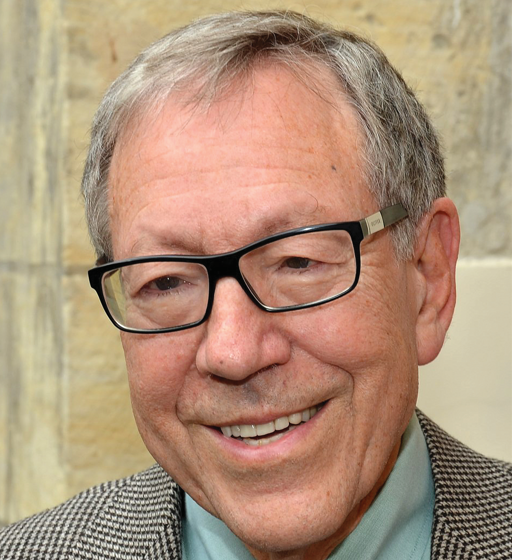A Discussion With Irwin Cotler: Confronting Antisemitism and Defending Human Rights
International Human Rights Lawyer Warns of Rising Antisemitism and Urges Unified Action to Protect Democratic Values

With antisemitism an acute anxiety for Jews everywhere, a recent conversation hosted by Touro University called “Fighting Apartheid, Antisemitism, and Injustice: A Conversation With Irwin Cotler” could not have felt more timely.
Dr. Alan Kadish, president of Touro University, sat down with international human rights lawyer and former Canadian Minister of Justice Irwin Cotler for a wide-ranging discussion that hinged on antisemitism but encompassed far more topics: human rights, free speech, shifting partisan sentiment on Israel and social media, among others.
Cotler is international chair of the Raoul Wallenberg Centre for Human Rights and served as counsel for prisoners of conscience like Nelson Mandela and Natan Sharansky. “My father taught me that pursuing justice is equal to all the other commandments combined,” Cotler shared, adding that his mother urged him to fight injustice outside his own community. He followed their advice and became deeply engaged with two great human rights struggles of the past century: fighting for liberty in the former Soviet Union and against apartheid in South Africa.
“I see the struggle for Soviet Jewry as a model for what a critical mass of advocacy can accomplish,” said Cotler. He pointed to Natan Sharansky as emblematic, noting that Sharansky advocated not only for Jewish refuseniks but for other persecuted groups as well.
These experiences with human rights give Cotler a unique perspective on the eruption of antisemitism following October 7, 2023 — though he maintains that Jew-hatred was flourishing before Hamas’ horrific attack.
Before October 7, “There was a tripartite paradigm at the time: antisemitism from the far right, the far left and radical Islam,” Cotler said. “There was increasing normalization of anti-Jewish attitudes in politics, media and academia, and waning solidarity from traditional allies.”
The global reactions that followed that day — paltry condemnations and outright justifications — were far more stunning, he suggested.
Antisemitism — A Menace to Democracy
Gleaning from his expertise, Cotler laid out possible remedies. It is vital, he urged, to approach the issue by communicating that antisemitism is not only a threat to Jews but also a menace to democracy.
“This will take a whole-of-government and whole-of-civil society approach,” he said. “Federal, state and municipal authorities need to work in tandem to fight antisemitism. We need action across party lines; antisemitism should be an obvious common cause, yet we’re seeing it weaponized for political gain.”
During the discussion, Dr. Kadish raised an important nuance: While most Democrats in Congress still support Israel, polls show such sentiment does not extend to the Democratic electorate. He further noted that educational environments at both the K-12 and university levels function in ways that, intentionally or not, support antisemitic views. Cotler did not disagree, citing an alarming poll showing that more people in the 18-24 year-old demographic support Hamas than they do Israel.
In contrast to the troubling American landscape, Cotler asserted, the Canadian one offers examples of proactive measures.
“In Canada, we’ve recommended adopting and implementing the International Holocaust Remembrance Alliance’s working definition of antisemitism — the most comprehensive and democratically adopted one out there,” said Cotler. The Canadian government has also produced a manual for antisemitism awareness training within governments, universities and elsewhere, underscoring its commitment to fighting against hatred.
Cotler addressed the importance of changing attitudes but focused on the young people not in municipal buildings or classrooms, who mostly get information from social media.
“Online incitement leads to offline hate crimes,” said Cotler. “I am an apostle of free speech, but the First Amendment does not protect all speech. We must fight hate speech at every turn.”
“I’ll never forget what then-Secretary General of the U.N. Kofi Annan said when I was minister,” said Cotler. “He said, ‘A U.N. that does not put fighting antisemitism at the forefront of its policy is a U.N. that has betrayed its past and forfeited its future.’”
Today, Cotler argued, the U.N. has drifted far from that vision, electing to its human rights council rights violators like Russia and China, criticizing Israel and arguably institutionalizing antisemitism. Yet even as he condemned the U.N.’s failings, he insisted that continued engagement is important to remind the organization of its founding ideals.
At the end of the conversation, Dr. Kadish presented Cotler with a generous citation. Cotler closed his thoughts with a Mishnaic reference.
“We’re taught ‘lo alecha ham’lacha ligmor,’” he said. “We don’t have to finish the task, but it’s incumbent on us to pursue justice without desisting.”
/prod01/channel_38/media/redesign/assets/images/background-images/locations-background.jpg)
